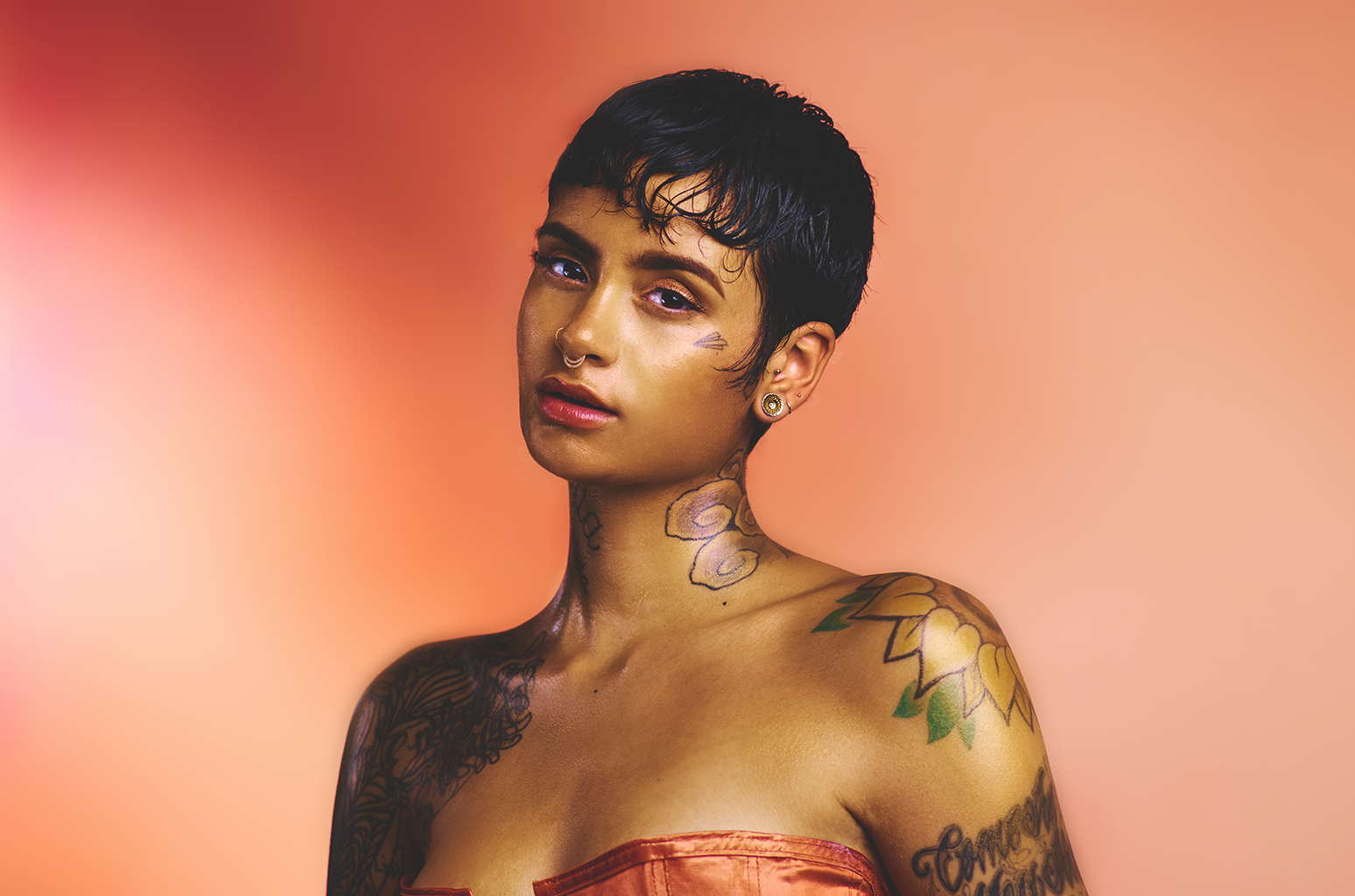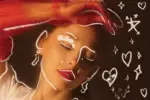Representation is important in the music industry. In recent years, many queer artists have grown in popularity, selling out shows and making music that has spread to radio stations across the world.
While some of their songs deal with the struggles of being queer, many sing about falling in and out of love with members of their preferred gender with the assumption of acceptance, an approach to pride that normalizes queerness and takes control of the expression of sexuality in music. Here are six diverse musicians with various styles who all identify as LGBTQ+.
1. Le1f
A rapper from Manhattan, Le1f initially gained recognition as a producer for hip-hop group Das Racist. Since then, he has released several mixtapes and EPs, culminating in “Riot Boi,” his debut studio album. His music combines experimental beats with subversive lyrics to create sexually charged songs. Le1f himself isn’t shy about the sexual intention of his music: as he said of his mixtape “Tree House” in an interview with Fuse, “I want people to have sex to it.”
[su_youtube url=”https://www.youtube.com/watch?v=Nrnq4SZ0luc”]
Le1f performed at my college last spring, and although the concert was outdoors on a cold, rainy day, his performance quickly drew a large crowd. The most memorable part of the concert was when he grabbed an open bottle of wine, took a swig, and with a glance at the security guards stationed at the side of the stage, handed it to the screaming crowd of students. A few minutes later, Le1f had jumped into the audience, the breakneck pace of his rapping unhindered by the crowd pressing in around him.
2. dodie
From posting her first original songs on YouTube to selling out shows across England, dodie has risen from obscurity to relative fame in the span of a few years. Her two EPs, “Intertwined” and “You,” combine her trademark ukulele and soft voice to create a range of music from peppy ditties to sweet, sad songs.
[su_youtube url=”https://www.youtube.com/watch?v=Vpg3gtwepSs”]
On her YouTube channels, dodie has been open about both her sexuality and her struggles with mental health, topics that are reflected in her music. The song “Intertwined” describes the fears that accompany being in a relationship when you have a mental illness; “Secret for the Mad” provides reassurance that it is possible to get through depression; “She” muses on the bitter sweetness of falling in love with another girl; “In the Middle” cheekily wonders what it would be like to hook up with two exes. Throughout her time on YouTube, dodie has built up a dedicated fanbase who have supported her in her journey through mental health struggles and her rise from acoustic song covers to nominations and awards.
3. Mary Lambert
Well known for being featured on Macklemore’s “Same Love,” Mary Lambert has released a studio album and three EPs of her own. She pairs a sweet voice with a pop style and the occasional spoken word song to create a unique amalgam of peppy pop songs and raw, poetic outpourings set to piano music.
[su_youtube url=”https://www.youtube.com/watch?v=cqqqV50zaAc”]
Lambert’s music deals with a variety of topics close to her heart. She sings about body positivity, embracing your flaws and loving yourself for who you are. She also grapples with her sexuality, which her Christian roots forced her to repress for many years, both in wistful songs like “Jessie’s Girl”—about the pain of seeing the woman she loves in a man’s arms—and joyful love songs like “I’d Be Your Wife.” Lambert also deals with mental illness and overcoming the limits placed on her in childhood, obstacles that she encourages her listeners to fight through as well; her shows, according to an interview with Huffington Post, are “safe spaces where crying is acceptable and even encouraged.”
4. Kehlani
This Oakland singer initially gained recognition as the vocalist of a cover band that placed fourth on America’s Got Talent in 2011. Since moving on to a solo career, Kehlani combines R&B and hip-hop in her original music, and the smooth voice that earned her band the attention of the show’s judges propelled her to a 2016 Grammy nomination for her first album, “You Should Be Here.”
[su_youtube url=”https://www.youtube.com/watch?v=2d7U4CX0PHk”]
Her official major-label debut album, “SweetSexySavage,” mixes defiance with acceptance. It tells the narrative of a relationship going from “Undercover,” a song challenging the people who don’t want to see the couple together, to “Personal,” in which Kehlani decides to move on from the boyfriend she had been so determined to stay with. The album tells a fearless story of personal growth and reclaiming womanhood, and the dreaminess of the music itself accentuates the self-aware boldness of Kehlani’s lyrics.
5. Troye Sivan
Another artist who got his start on YouTube, Australian singer Troye Sivan has grown to international fame with singles from his EP “Trxye” and his album “Blue Neighborhood.” Although his music is often compared to Lorde’s and Taylor Swift’s, Sivan’s brand of pop is uniquely smooth, slow and sensual.
[su_youtube url=”https://www.youtube.com/watch?v=5xCMF7jsDJI”]
While Sivan’s songs generally don’t use specific pronouns when referring to lovers in his songs, queer relationships play a large role in the music videos for both “Trxye” and “Blue Neighborhood.” The title of the latter refers to growing up closeted in a small, heterocentric community, and the wistful dream of leaving that neighborhood is a theme that runs through the album.
6. Princess Nokia
Unapologetic in claiming her identity and in accepting herself for who she is, Princess Nokia raps about everything from race to femininity to life in New York to body positivity to, of course, sexuality. Her songs are fierce reminders to accept yourself in spite of the shame others may try to force upon you for the unchangeable parts of yourself.
[su_youtube url=”https://www.youtube.com/watch?v=qa5HMtVqR6o”]
In addition to releasing three mixtapes under different stage names, Princess Nokia has co-founded the feminist collective “Smart Girl Club.” She created the group “so I could have my own space when I was co-existing within a lot of white cis male spaces…where I could talk about urban feminism, sexuality, relationships, spirituality, music, art, and interview people and laugh and make fun of myself,” as she said in a 2017 interview with The Guardian. She always felt like a misfit, a theme present in many of her songs, but she has carved out a place in music, where she can be herself and know herself and share her determination to live unapologetically.
Although these artists’ queerness has influenced their music, they are not defined solely by their sexualities, and their music speaks for itself, covering trials and triumphs that are not queer, but human. Spreading their music to a broader audience is important for normalizing a spectrum of sexualities and for providing otherwise oppressed queer voices with a microphone and a stage to speak, sing or rap about their human experience.
You can find each artist’s music on YouTube, iTunes, Spotify and iTunes.

















